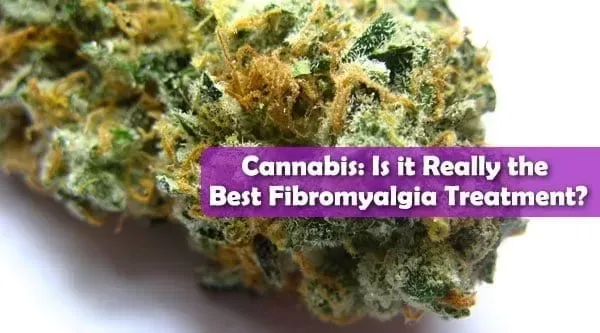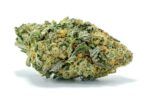What is Fibromyalgia?
Fibromyalgia can be a chronically debilitating condition, with frustrating symptoms that can include: chronic diffuse pain, lack of sleep, migraines, constant fatigue, irritable bowel syndrome (IBS), joint pain/inflammation and tender points in specific regions of the body. Fibromyalgia also affects women twice as much as it affects men.
Every case is different, with each individual having a variance of symptoms and severities that range from mildly annoying to completely debilitating. Generally, fibromyalgia can be characterized by a generalized amplification of pain or hypersensitivity condition and is associated with tender points in the muscles.
This heightened sense of pain is from abnormal processing of signals in the central nervous system and this translates into a whole host of symptoms that can be underdiagnosed or misdiagnosed completely.
Moreover, there have also been a number of links made between fibromyalgia and depression, chronic stress, anxiety and post-traumatic stress disorder; which led many clinicians of the past to conclude that the symptoms of fibromyalgia were, “all in the patient’s head”.
Limited Treatment Options
Today, Clinicians understand the mechanisms of fibromyalgia a little better; however, treatment options remain limited. There are only 2 Health Canada approved drugs to treat fibromyalgia; one being an antidepressant called duloxetine (Cymbalta) and the other one being an anti-seizure medication called pregabalin (Lyrica). These pharmaceuticals have a huge number of side effects and are not well tolerated in some patients.
Furthermore, many other medications and supplements are used with the aim to reduce the symptoms of fibromyalgia, such as pain; but can have many unintended and harmful consequences, even when the medications are taken responsibility (link opiate info).
The Endocannabinoid System
Fibromyalgia and the Endocannabinoid SystemThe endocannabinoid system (ECS) is made up of cannabinoid receptors within the brain, spinal cord, peripheral nerves, organs and gastrointestinal system. It helps the body maintain homeostasis and is involved in a number of physiological processes, including pain sensation, memory, appetite and mood.
There has been a large amount of anecdotal evidence over the years that cannabis was one of the best treatments for fibromyalgia, but little in an explanation as to why. Dr. Ethan Russo has theorized that a number of disorders; including fibromyalgia, may be due to chronic deficiencies within the ECS, and that cannabis ingestion may supplement what is missing, thereby decreasing problematic symptoms.
Moreover, in a recent systematic review of 18 randomized controlled trials in chronic, non-cancer pain, two of which were for fibromyalgia, cannabinoids were superior to placebo for analgesic effect, with some also showing improvements in sleep quality as well.
Furthermore, Health Canada has finally come to recognize that cannabis can be beneficial in reducing overall symptomatologies associated with fibromyalgia, and is even including information on medical marijuana in new Canadian fibromyalgia treatment protocols.
Other studies have investigated the effectiveness of cannabinoid treatment in fibromyalgia patients and have found:
- A small group of fibromyalgia patients who received daily doses of THC and no other pain medications reported a significant reduction in daily recorded pain.
- The synthetic cannabinoid called nabilone improved symptoms in 40 patients with fibromyalgia in a randomized, double-blind, placebo-controlled trial.
- A recent study from Spain reported that patients who used cannabis had a statistically significant reduction in pain and stiffness, enhancement of relaxation, and improved sleep with an increased feeling of well being.
Healing in a Natural Way
Fibromyalgia can feel like the disease with a thousand faces at times. The symptoms can morph, evolve, disappear or more frustratingly, reappear; with little to no warning and the patient can grow depressed and frustrated over the lack of a clear solution or cure to the chronic illness.
The following cannabis treatment protocol can and should be individually tailored to each patients’ unique conditions and symptomology. Moreover, we will list common fibromyalgia symptoms and specific cannabis strains that can combat these common symptoms.
Fibromyalgia Common Symptoms:
Cognitive and memory problems AKA “Fibro Fog”
Jack HererStrains that can help:
- Jack Herer
- Tropicana
- Congo
- Wonder Woman
Sleep problems and disturbances
XXX OGStrains that can help:
- XXX OG
- Gorilla Glue #4
- Death Bubba Kush
- Lindsay OG
Morning Stiffness
Super Lemon HazeStrains that can help:
- Super Lemon Haze
- Moby Dick
- Organic Chocolope Kush
- Pink Diesel
Fatigue
Green GoblinStrains that can help:
- Green Goblin
- Black Cherry Soda
- Acid Dough
- Mango Haze
- Oregon Golden Goat
- J-27
Pain
GodFather OGStrains that can help:
- Godfather OG
- White Castle
- Grandaddy Blueberry
- Dark Star
Finding the Perfect Treatment:
A mixture of CBD and THC is optimal for treating fibromyalgia. Each patient should take a central role in deciding their specific treatment protocols based on individual goals and outcomes set. Finding the perfect cannabis treatment regimen takes time; but when you hit the sweet spot, quality of life improves dramatically.
Furthermore, do not be discouraged if for some reason you cannot ingest cannabis in flower form. There are many alternate ways for patients to receive their cannabis medication, such as (but not limited to): tinctures, ointments, concentrates and edibles (there’s even THC infused popcorn seasoning!).















nice article